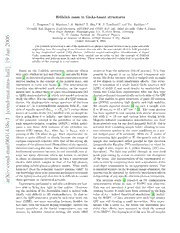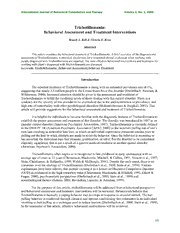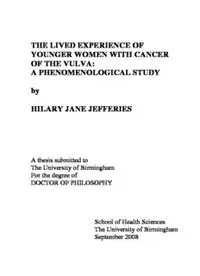
the lived experience of younger women with cancer of the vulva PDF
Preview the lived experience of younger women with cancer of the vulva
THE LIVED EXPERIENCE OF YOUNGER WOMEN WITH CANCER OF THE VULVA: A PHENOMENOLOGICAL STUDY by HILARY JANE JEFFERIES A thesis submitted to The University of Birmingham For the degree of DOCTOR OF PHILOSOPHY School of Health Sciences The University of Birmingham September 208 Abstract Cancer of the vulva is a comparatively rare cancer that requires radical surgery. Whilst the physical effects of the surgery can readily be described, little is known about the psychological, emotional and social impact of this condition. A review of the literature showed a paucity of studies (Andersen and Hacker 1983; van de Wiel 1990; and Green et al 2004) and produced limited insights into the wider impact of this disease. The question driving this work is ‘What must it be like to be diagnosed with, and have surgery for, a vulval cancer?’ The purpose was to gain an understanding of the women’s own perspectives of their care and to inform the development of clinical nursing practice. An interpretative phenomenological approach was taken based on the work of Heidegger and van Manen (van Manen 1990; Mulhall 1996). Thirteen women were identified by purposive sampling and interviewed. The women were all below 50 years of age and had surgery to remove the cancer between 6 months and 5 years prior to the interview. The data was analysed using framework analysis (Ritchie and Spencer 1994). Four key concepts emerged from the data, Searching, Aloneness, All Change and Professional Connectivity, and were shown to be incorporated within the four existentials of the every day world, Lived Body, Lived Relationship, Lived Time and Lived Space (Van Manen 1990). The lived experience is described in its entirety by the concept of Invisibility which reflects the challenges the women faced in living with a condition that is not recognised or widely discussed, a factor that impacts on the way in which these women can share their experience with family, friends and the health care professionals. The study concludes by making tentative suggestions as to how the insights gained could be used to improve the care of women with vulval cancer in the future. Acknowledgements There are many people to whom I would like to express my gratitude for their encouragement and support during my research journey. In particular, I would like to express my appreciation and thanks to the following: • To all the women who through their experience of vulval cancer, took part in the study to teach us how to care for women in the future. • My supervisors at The University of Birmingham, Professor C. Clifford and Dr D. Farrell, for all their help and guidance. Kate Lillie and Wendy Walker, fellow travellers along the phenomenology road, have also been a great encouragement. • Ms Jacky Cotton and the Birmingham Women’s Hospital NHS Foundation Trust who contributed towards my fees and study leave. • Keith Shankland, General Manager International Business Units, Owen Mumford Ltd, who provided financial assistance for secretarial support in transcribing the tapes and the cost of travelling to the interviews. In addition, I have many friends and colleagues who have helped in a myriad of practical ways. I would like to mention especially: • Rev Denise Jones for encouraging me to persevere. • Liz Coombes, my clinical supervisor, who ‘saw’, ‘heard’ and ‘talked’ to me in the crucial writing and re-writing phase – a very wise monkey indeed. • Helen Grew, my dear friend, who helped with proof reading. Lastly, but by no means least, I would like to thank my husband Doug for all his support. Thank you for tiptoeing around the house, forgoing weekend leisure and holiday breaks, and always being there for me. To Tim, Julia, Claire, Craig, Elizabeth and Rebekah, my thanks and love. Table of Contents ABSTRACT..........................................................................................................................2 ACKNOWLEDGEMENTS.................................................................................................3 LIST OF FIGURES ...........................................................................................................10 LIST OF TABLES .............................................................................................................11 GLOSSARY........................................................................................................................12 CHAPTER I..........................................................................................................................1 INTRODUCTION................................................................................................................1 1.1 Introduction ................................................................................................................1 1.2 Cancer of the vulva ....................................................................................................1 1.3 Background to the study............................................................................................4 1.3.1 Anecdotal awareness...................................................................................................................... 5 1.3.2 As a woman ................................................................................................................................... 6 1.4 Research question.......................................................................................................8 1.5 Framework of the study...........................................................................................10 1.6 Summary...................................................................................................................12 CHAPTER 2 .......................................................................................................................13 LITERATURE REVIEW..................................................................................................13 2.1 Introduction ..............................................................................................................13 2.2 Review of the literature ...........................................................................................13 2.3 Research designs.......................................................................................................19 2.4 Findings in the literature .........................................................................................30 2.4.1 Physical impact............................................................................................................................ 30 2.4.2 Psychological effects ................................................................................................................... 32 2.4.3 Impact on sexual function............................................................................................................ 35 2.4.4 Information provision .................................................................................................................. 41 2.4.5 Relationship with the health care team ........................................................................................ 43 2.4.6 Recommendations........................................................................................................................ 44 2.5 Summary...................................................................................................................46 CHAPTER 3 .......................................................................................................................48 METHODOLOGY.............................................................................................................48 3.1 Introduction ..............................................................................................................48 3.2 Phenomenology as a philosophy .............................................................................49 3.2.1 An Overview of the work of Husserl ........................................................................................... 50 3.2.2 Hermeneutic phenomenology: the work of Heidegger ................................................................ 52 3.2.3 An overview of the work of van Manen ...................................................................................... 54 3.3 Phenomenology as a research method....................................................................56 3.4 Design of the study ...................................................................................................62 3.5 Interview schedule....................................................................................................67 3.7 Sampling....................................................................................................................71 3.7 Ethical issues.............................................................................................................73 3.8 Summary...................................................................................................................77 CHAPTER 4 .......................................................................................................................78 DATA ANALYSIS .............................................................................................................78 4.1 Introduction ..............................................................................................................78 4.2 Framework Analysis ................................................................................................79 4.2.1 Familiarisation ............................................................................................................................. 81 4.2.2 Identifying a thematic framework................................................................................................ 81 4.2.3 Indexing ....................................................................................................................................... 83 4.2.4 Charting ....................................................................................................................................... 87 4.2.5 Mapping....................................................................................................................................... 93 4.3 Development of concepts .........................................................................................93 4.4 Integration of themes and concepts within the phenomenological framework..98 4.4 Summary.................................................................................................................101 CHAPTER 5 .....................................................................................................................103 THE STORIES.................................................................................................................103 5.1 Introduction ............................................................................................................103 5.2 The Stories ..............................................................................................................104 5.3 Overview .................................................................................................................119 5.4 Symptoms experienced ..........................................................................................121 5.4 Summary.................................................................................................................123 CHAPTER 6 .....................................................................................................................124 SEARCHING....................................................................................................................124 6.1 Introduction ............................................................................................................124 6.2 Searching to control the symptoms ......................................................................126 6.2.1 Searching to control by surgery ................................................................................................. 131 6.2.2 Searching to control emotions: informational needs.................................................................. 132 6.3 Searching for meaning...........................................................................................135 6.3.1 Situational meaning ................................................................................................................... 136 6.3.3 Significance of precancerous conditions.................................................................................... 139 6.3.4 Existential meaning ................................................................................................................... 141 6.4 Searching: the time element ..................................................................................143 6.5. Summary.................................................................................................................146 CHAPTER 7 .....................................................................................................................147 ALONENESS....................................................................................................................147 7.1 Introduction ............................................................................................................147 7.2 Aloneness: for want of nearness............................................................................149 7.3 Aloneness: for want of normality..........................................................................150 7.4 Aloneness: for want of awareness .........................................................................168 7.5 Aloneness: for want of openness ...........................................................................172 7.5.1 Stigma........................................................................................................................................ 174 7.5.2 A sense of embarrassment ......................................................................................................... 177 7.5.3 A lack of shared experience....................................................................................................... 179 7.6 Summary.................................................................................................................182 CHAPTER 8 .....................................................................................................................183 ALL CHANGE.................................................................................................................183 8.1 Introduction ............................................................................................................183 8.2 All Change: a difference ........................................................................................184 8.2.1 Delayed wound healing ............................................................................................................. 195 8.2.2 New challenges.......................................................................................................................... 198 8.3 All change: lack of choice ......................................................................................200 8.4 All Change: uncertainty ........................................................................................202 8.5 All Change: family and friends.............................................................................206 8.6 Summary.................................................................................................................213 CHAPTER 9 .....................................................................................................................215 PROFESSIONAL CONNECTIVITY ............................................................................215 9.1 Introduction ............................................................................................................215 9.2 Knowledge...............................................................................................................217 9.2.1 Nursing knowledge.................................................................................................................... 223 9.2.2 Dependency ............................................................................................................................... 227 9.2.3 Loss of faith ............................................................................................................................... 229 9.4 Communication ......................................................................................................231 9.4.1 Time element ............................................................................................................................. 239 9.4.2 Information provision ................................................................................................................ 241 9.4.3. Information provider.................................................................................................................. 248 9.5 Summary.................................................................................................................252 CHAPTER 10 ...................................................................................................................254 THE LIVED EXPERIENCE ..........................................................................................254 10.1 Introduction ............................................................................................................254 10.2.1 Invisibility: no-one can see it..................................................................................................... 257 10.2.2 Invisibility: no-one has heard of it ............................................................................................. 262 10.2.3 Invisibility: no-one talked about it ............................................................................................. 265 10.3 Impact of invisibility ..............................................................................................271 10.3.1 Invisibility of understanding...................................................................................................... 272 10.3.2 Invisibility of support ................................................................................................................ 274 10.4 Conclusion...............................................................................................................276 CHAPTER 11 ...................................................................................................................279 IMPLICATIONS AND FINAL REFLECTION ...........................................................279 11.1 Introduction ............................................................................................................279 11.2 Giving a voice..........................................................................................................279 11.3 Limitations ..............................................................................................................281 11.4 Considerations for practice ...................................................................................282 11.5 Considerations for further research.....................................................................285 11.6 Final reflection........................................................................................................286 REFERENCES.................................................................................................................289 Appendices ........................................................................................................................303 Appendix 1 Role of the Gynaecology Oncology CNS ..................................................304 Appendix 2 Cancer of the vulva.....................................................................................308 2.1 Aetiology of cancer.............................................................................................................................. 308 2.2 Anatomy of the vulva .......................................................................................................................... 309 2.3 Aetiology of vulval cancer................................................................................................................... 310 2.4 Incidence.............................................................................................................................................. 312 2.5 Screening methods............................................................................................................................... 312 2.6 Natural History .................................................................................................................................... 312 2.7 Signs and symptoms ............................................................................................................................ 313 2.8 Diagnosis ............................................................................................................................................. 313 2.9 Treatment............................................................................................................................................. 314 2.10 Adjuvant treatment ............................................................................................................................ 315 2.11 Prognosis ........................................................................................................................................... 315 Appendix 3 The nursing care of a patient following surgery for vulval cancer........316 Appendix 4 Interview schedule ......................................................................................320 Appendix 5 Information regarding the study...............................................................326 Appendix 6 Letter inviting the woman to participate in the study.............................328 Appendix 7 Consent form...............................................................................................329 Appendix 8 Letter to the hospital Consultant and GP ................................................330 Appendix 9 Copy of the ethical approval......................................................................331 Appendix 10 Letter from LREC requiring further clarification for Study ..............332 Appendix 11 Letter awarding £1500 from Owen Mumford Ltd for secretarial support ..............................................................................................................................333 Appendix 12 Costs of completing the study..................................................................334 List of Figures Figure 1 The continuum of the woman’s experience .......................................................5 Figure 2: Hermeneutical Circle of understanding ..........................................................53 Figure 3: Hermeneutical Spiral of understanding ..........................................................54 Figure 4: The Concept of Searching...............................................................................126 Figure 5: The Concept of Aloneness...............................................................................148 Figure 6: The Concept of All Change.............................................................................184 Figure 7: Altered body image: the impact .....................................................................186 Figure 8: The Concept of Professional Connectivity ....................................................217 Figure 9: The Concept of Invisibility .............................................................................257 Figure 10: The Impact of Invisibility .............................................................................271 Figure 11: The Lived Experience....................................................................................278 Figure 12: My Lived Experience ....................................................................................288
The list of books you might like

Haunting Adeline

$100m Offers

The Strength In Our Scars

Credence
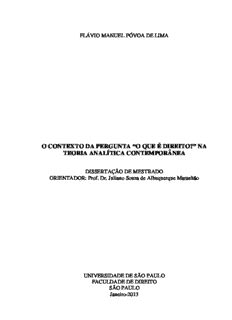
“o que é direito?” na teoria analítica contemporânea
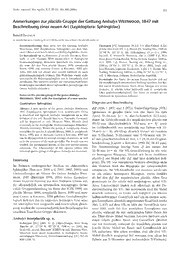
Anmerkungen zur placida-Gruppe der Gattung Ambulyx Westwood, 1847 mit Beschreibung einer neuen Art

Extreme Solar Particle Storms: The Hostile Sun
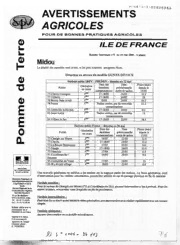
Avertissements Agricoles - Pomme de terre - Ile de France - 2006 - 5

CENTRIFLOW 3D PLug FaN WITH PM MOTOR
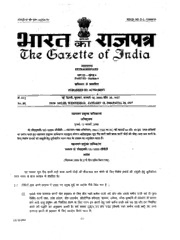
Extraordinary Gazette of India, 2006, No. 622
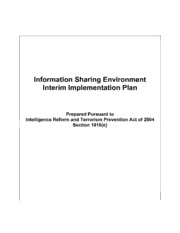
DTIC ADA457505: Information Sharing Environment Interim Implementation Plan
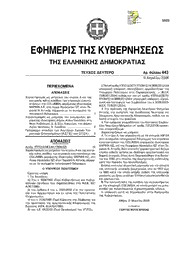
Greek Government Gazette: Part 2, 2006 no. 443
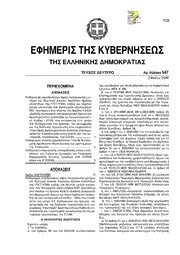
Greek Government Gazette: Part 2, 2006 no. 547
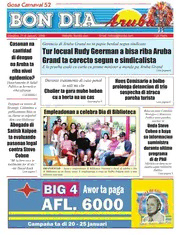
Bon Dia Aruba (21 Januari 2006)

By Cracky, Abe's Nominated
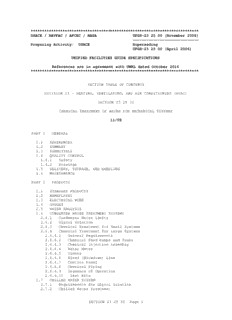
UFGS 23 25 00 Chemical Treatment of Water for Mechanical Systems
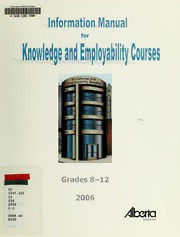
Information manual for knowledge and employability courses : grades 8-12

Memorabilia
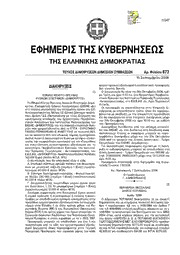
Greek Government Gazette: Part 7, 2006 no. 673
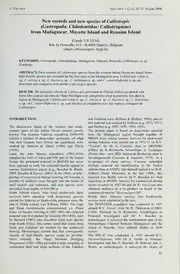
New records and new species of Calliotropis (Gastropoda : Chilodontidae
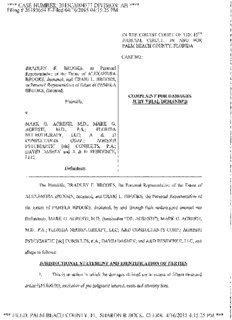
case nuiviber: 2015ca004377 division: ah
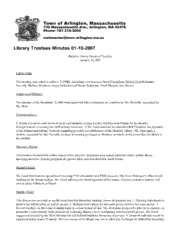
01102007-Minutes-Library
